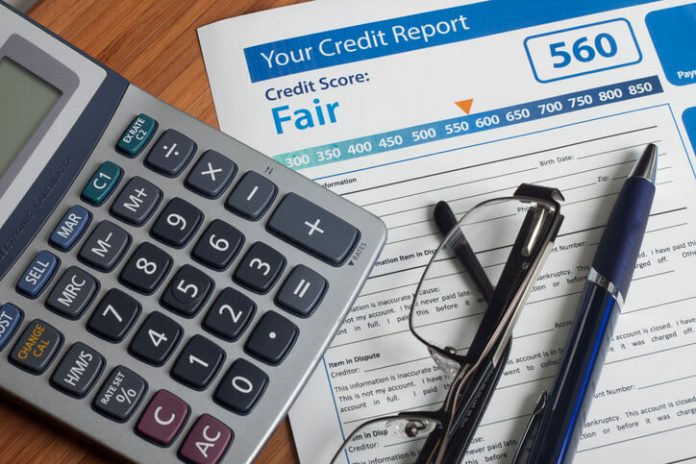What Is A Credit Report?
Your credit report is crucial for a multitude of people and organizations such as financial lenders, mortgage lenders, potential employers, utility companies and most of all – you!
A credit report is the best way to indicate to potential lenders or employers that you are able to manage a line of credit or your financial situation in a stable and responsible manner. If you can show that you are responsible with managing your finances, potential lenders are more likely to lend to you and potential mortgage lenders are more likely to approve your mortgage application with a favorable agreement.
Your credit report will have a lot of key information about you included in it such as:
Identity: This will include information such as your name, your address, your date of birth, social security number and possibly your employment status or employment information.
Public record: This information will include things such as whether or not you’ve had a judgement made against you, if you’ve ever applied for bankruptcy and when that was and if you have any tax liens applied against your property.
Third party inquiries: This will outline who has requested a full or partial copy of your report which may be due to a recent application of credit or for anti-money-laundering purposes.
Your credit: This is the most important part of your credit report. It has information on all the lines of credit you have such as mortgages, loans, credit cards and car finance agreements. It will also include details of your payment history, which can indicate if you’ve ever missed a payment and if so, when that was.
The Importance Of A Credit Report
Your credit report is essential in indicating your creditworthiness and how financially responsible you are. There are some key figures that will look at your credit report to decide on whether or not they will lend to you or commit to you in another way. These figures include:
Potential Lenders: Potential lenders need to look at your credit report to weigh up their risk in lending to you. People with a better credit report will normally be accepted, whereas people with a poorer credit report are less likely to be accepted. People without a credit history are more complicated, but there are normally avenues such as credit builder credit cards that get you started in the world of credit.
Potential Insurers: Insurance companies may look at your credit report to help them decide the rates they may charge. For monthly insurance payments, you’re effectively being allocated a line of credit – so the monthly and overall annual rates may change depending on your circumstances shown through your credit report.
Potential Utility Companies: Utility companies, much like insurers may use the information provided on your credit report to decide whether it is in their interest to supply you with their services. Providing services on a monthly basis for example is again, providing you with a line of credit. For someone with a poor history of paying their bills on time, the utility company might rule that it isn’t wise for them to do business with you.
Potential Employers: Some employers may wish for this information to help them decide if they want to offer you employment. It’s more common for this to happen if the job involves finances such as in a bank or financial institution or in positions of power such as Government. These areas require somebody to be able to manage their own finances if they’re going to be managing someone else’s financial affairs.
Potential Landlords: A landlord may request your credit report when weighing up whether or not to sign a rental agreement with you. A person with a poor payment history or is up to their eyeballs in debt is unlikely to be able to afford further financial commitments through rent.
Credit Bureaus
A credit bureau is a group that collates all of your financial information and history and puts them onto a report. This is where a credit report comes from! There are three major credit bureaus and they are Experian, Equifax and TransUnion. When it is requested, they share this information in a safe and secure way when requested to certain individuals (such as those listed above).
Their information is collated through information received from your bank, credit card company, car finance company, utility companies, public records and court records. Each one of the credit bureaus might have differing sources of information, so may not necessarily have the exact same information. They may also report a credit score in a different format, so a score of X might correlate to a score of Y on another credit report.
Checking Your Report And Rectifying Errors
It’s important that you check your credit report on a frequent basis and always review the information listed on the report. If you have noticed an error on your credit report, it’s crucial that you file a credit report complaint using the credit bureau’s system.
For example, if you’ve noticed there is an error on your credit report generated by Experian, you would need to use their dispute center online. Raising this and flagging this error is important. A credit bureau might change this information if you are able to provide sufficient information and evidence of the error – if not, you may need to contact the specific cause of the error.
For example, a lender may have claimed you have missed a payment a year ago, but you have evidence that you did not. In which case, you would need to contact that lender and provide this evidence. They should then be able to change their records and alter the next generated credit report that the bureau will compile.
Missed payments can stay on your credit report for up to 7 years and are a huge red flag for potential lenders, so if you notice a mistakenly reported missed payment, you’ll need to do this as soon as possible.
Disclaimer: This article contains sponsored marketing content. It is intended for promotional purposes and should not be considered as an endorsement or recommendation by our website. Readers are encouraged to conduct their own research and exercise their own judgment before making any decisions based on the information provided in this article.


























![“Does Everyone Hear Me OK?”: How to Lead Virtual Teams Effectively iStock-1438575049 (1) [Converted]](https://www.europeanbusinessreview.com/wp-content/uploads/2024/11/iStock-1438575049-1-Converted-100x70.jpg)




